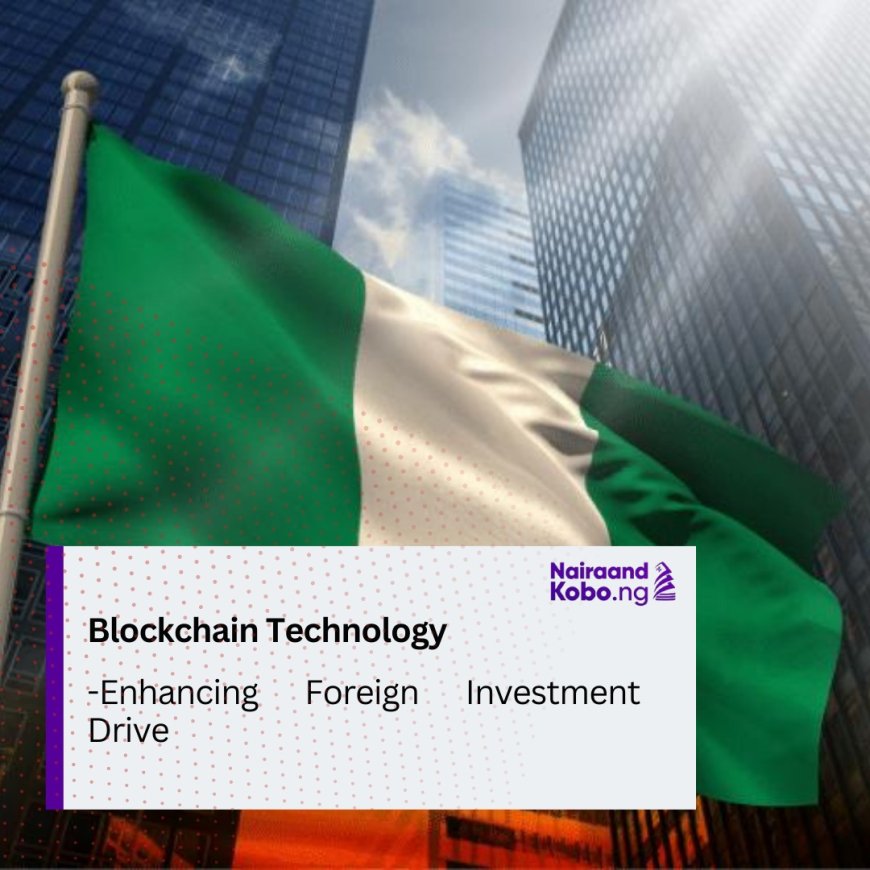Enhancing Foreign Investment Drive

With the Nigerian economy experiencing new lows, including rising poverty rates instigated by the monetary policy of floating the naira and runaway inflation, there cannot be a better time than now to aggressively pursue foreign direct investment (FDI). Attracting new investors, experts claim, can potentially retool the economy and place it on an even keel.
Fuel subsidy removal, lower crude earnings, high import bills, and debt servicing obligations, among other worrisome economic conditions the nation currently faces, could potentially harm the country’s external reserves if the sufficient attention is not paid to the drive to attract investment from abroad.
The picture looks even more dire, as early this year, the National Bureau of Statistics (NBS)’s capital importation report indicated that foreign direct investment inflows in Nigeria fell to $119.2m in Q1 from $183.9m in the previous quarter.
Well, it is clear that the country’s harsh business environment, exacerbated by fuel subsidy removal and the floating of the naira, is at the heart of this. Other factors responsible for this worrying decline in FDI inflows to Nigeria include the gloomy macroeconomic environment, reduced investment by international oil companies, infrastructure deficits, and seemingly intractable security challenges.
These factors have led to an exodus of foreign companies, which will affect the country’s $1 trillion economy target by 2030 unless concerted efforts are made to address this gloomy picture. In this precarious situation, governments and the private sector must boost foreign direct investment to foster economic resilience and ensure a more stable and prosperous future for all.
To effectively leverage this source of funding for the economy, the government must address the issues that lead to capital flight and make the attraction of new investments from abroad difficult. This requires providing all the necessary support for businesses to thrive.
The expert opinion suggests that the nation must do all it takes to attract foreign investment. This includes providing all the necessary support and implementing measures to strengthen the ease of doing business for local and foreign companies.
Against this background, deliberate measures must be taken to support and help local businesses grow while wooing their foreign counterparts. It will, therefore, be counterintuitive to needlessly disparage local businesses strictly based on political expediency.
Tellingly, any attempt to de-market local companies may scare investors away. It is not advisable to continue to de-market local companies, especially those with no criminal cases against them and are contributing meaningfully to the nation’s economy.
Nigerians rose against the penchant to de-market local companies when they recently took the Chief Executive of the Nigerian Midstream and Downstream Petroleum Regulatory Authority (NMDPRA), Farouk Ahmed, to the cleaners over his controversial comments on the Dangote Refinery. Ahmed incurred the wrath of Nigerians when he claimed that the diesel produced by the $19 billion Dangote refinery was inferior to the one imported into the country.
Expectedly, Nigerians are also condemning deliberate attempts to de-market Oando Plc by persons out to cast aspersion on Jubril Adewale Tinubu, the Group Chief Executive of the company, simply because of his familial relationship with President Bola Ahmed Tinubu.
We recall that Oando, one of the key players in the nation’s oil and gas sector, was incorporated as Ocean and Oil Holdings in 1994. It eventually secured a 42.75 per cent interest in OML 56 and consolidated its Upstream Operations. As Sub-Saharan Africa’s foremost Indigenous energy group, Oando has dual listings on the Nigerian Exchange Group and the Johannesburg Stock Exchange.
However, some Nigerians disparage Oando. They attributed the company’s towering profile to what they termed undue favouritism by the present administration, ignoring that the company made its mark years before Tinubu became Governor of Lagos state over 20 years ago.
It is difficult to rationalise the thinking that Oando’s current towering profile is simply because of Wale Tinubu’s relationship with Nigeria’s seat of power when, years before the current administration, the company braced the odds and boldly acquired UniPetrol, Agip downstream and Conoco Phillips.
Nigerians must be unanimous in condemning the current attempts to de-market Oando and any other Nigerian business concern with no records of crime or illegal dealings because doing so scares foreign investors away.
Now, more than ever, is the time to support Nigerian entrepreneurs who have braved the odds to continue doing business in Nigeria despite the less-than-favourable environment. If the nation and its citizens cannot support these entrepreneurs because they truly deserve it, they should do so because it will encourage foreign investors.
Enhancing Foreign Investment Drive (leadership.ng)









